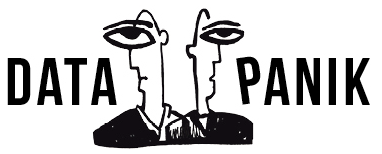Technologiedenker Zeynep Tufekci beschrijft voor Technology Review in sneltreinvaart hoe digitale technologieën zich de afgelopen zeven jaar ontwikkeld hebben. Ze schetst een lijn die vertrekt op het Tahrir Plein (de hoop) en voorlopig eindigt bij Donald Trump (het faillet?). Haar verhaal boeit door de manier waarop ze helder uitlegt wat de (vermeende) invloed is van de (anti-)sociale media en vooral hoe die invloed werkt.
Tufekci eindigt met een pleidooi om voorbij de technologieën te kijken en de verantwoordelijkheid voor de huidige situatie niet alleen bij Rusland of Facebook of Google of Twitter te leggen; de verantwoordelijkheid ligt ook bij onszelf. Op de vraag hoe we het tij dan kunnen keren, bestaan er volgens haar geen makkelijke antwoorden. Maar een paar stappen kunnen er zeker al gezet worden. Eén van die stappen pikken we er hieronder uit omdat ze nauw aansluit bij de thema’s van datapanik. Maar lees vooral het volledige artikel, er valt heel wat uit op te steken,
“The weak antitrust environment that allowed a few giant companies to become near-monopolies should be reversed. However, merely breaking up these giants without changing the rules of the game online may simply produce a lot of smaller companies that use the same predatory techniques of data surveillance, microtargeting, and “nudging.”
Ubiquitous digital surveillance should simply end in its current form. There is no justifiable reason to allow so many companies to accumulate so much data on so many people. Inviting users to “click here to agree” to vague, hard-to-pin-down terms of use doesn’t produce “informed consent.” If, two or three decades ago, before we sleepwalked into this world, a corporation had suggested so much reckless data collection as a business model, we would have been horrified.
There are many ways to operate digital services without siphoning up so much personal data. Advertisers have lived without it before, they can do so again, and it’s probably better if politicians can’t do it so easily. Ads can be attached to content, rather than directed to people: it’s fine to advertise scuba gear to me if I am on a divers’ discussion board, for example, rather than using my behavior on other sites to figure out that I’m a diver and then following me around everywhere I go—online or offline.”

